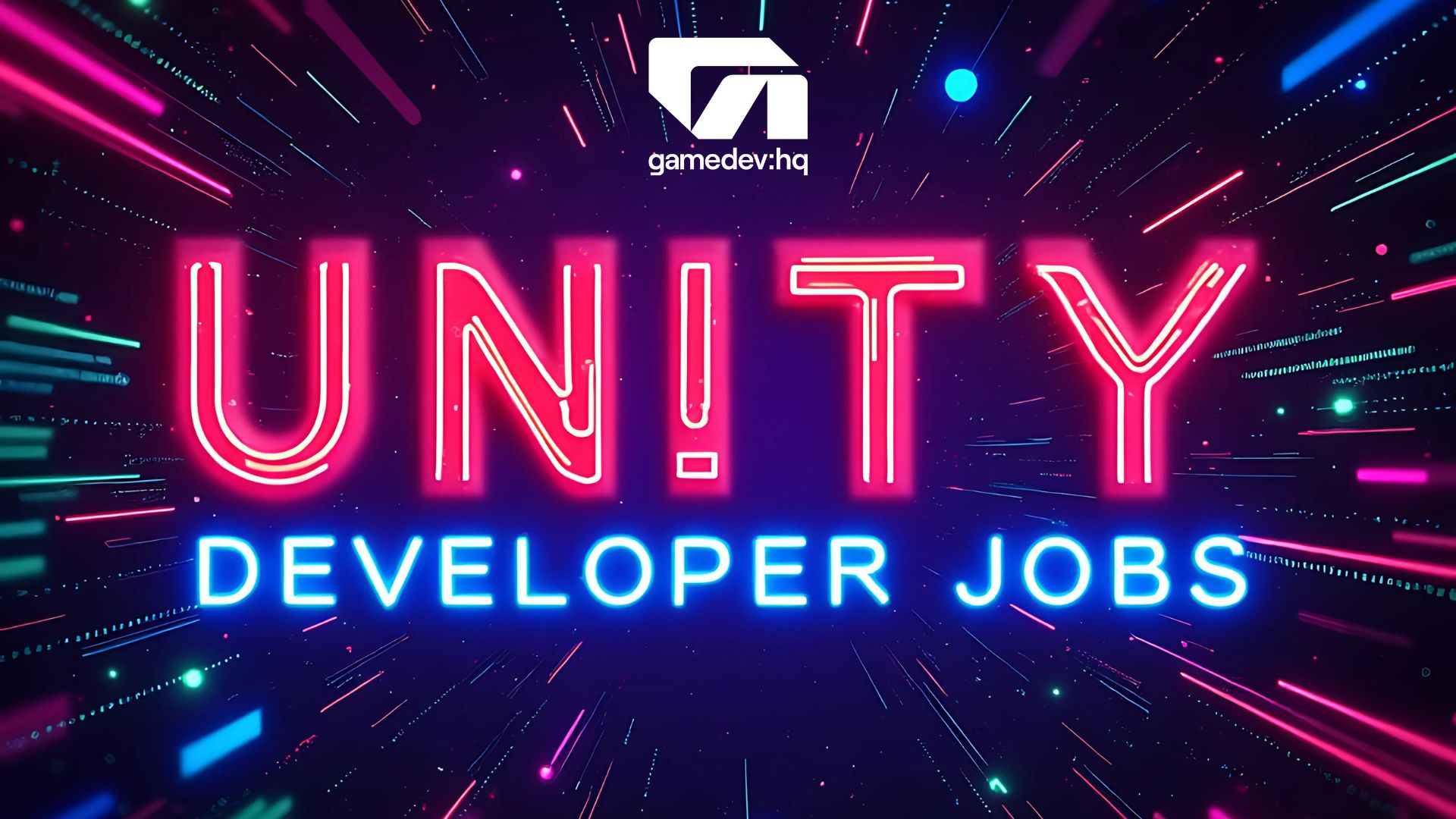10 Types of Jobs for Unity Developers
As a Unity developer, I've explored various career paths in the game industry. Let me share 10 specific job roles that Unity developers can pursue. I'll be using an analogy to a role-playing game (RPG) to illustrate how these jobs fit into the larger game development ecosystem.

As a Unity developer, I’ve explored various career paths in the game industry. Let me share 10 specific job roles that Unity developers can pursue. I’ll be using an analogy to a role-playing game (RPG) to illustrate how these jobs fit into the larger game development ecosystem.
1. Mobile Game Developer
Mobile game developers use Unity to create games for iOS and Android platforms. They focus on optimizing performance for mobile devices and implementing touch controls.
In the RPG of game development, mobile game developers are like the agile rogues, quick on their feet and able to adapt to the ever-changing mobile landscape.
2. VR/AR Application Developer
These developers specialize in creating virtual and augmented reality experiences using Unity. They work on projects ranging from immersive games to training simulations and educational apps.
VR/AR developers are the mages of our RPG, conjuring new realities and bending the rules of perception.
3. Unity UI/UX Designer
UI/UX designers in Unity create intuitive and visually appealing user interfaces. They work on menu systems, HUDs, and other interactive elements that enhance user experience.
These designers are the bards of our development party, crafting interfaces that sing to users and guide them through the game world.
4. Unity Gameplay Programmer
Gameplay programmers implement core mechanics, player controls, and AI behaviors in Unity. They bring game design documents to life through code.
In our RPG analogy, gameplay programmers are the warriors, forging the core systems that players will interact with directly.
5. Unity Tools Developer
Tools developers create custom editors and extensions within Unity to streamline the development process for other team members. They might build level editors, asset managers, or debugging tools.
Tools developers are like the blacksmiths of our RPG, crafting the instruments that empower other developers to work more efficiently.
6. Unity Multiplayer Network Programmer
These specialists focus on implementing networking solutions for multiplayer games in Unity. They handle tasks like synchronization, lag compensation, and server architecture.
Multiplayer network programmers are the monks of our development monastery, maintaining the invisible connections that bind players together.
7. Unity Technical Artist
Technical artists bridge the gap between artists and programmers. They create shaders, particle systems, and other visual effects while optimizing art assets for performance in Unity.
In our RPG, technical artists are the alchemists, blending art and science to create visual magic.
8. Unity Game Optimization Specialist
These developers focus on improving game performance, reducing load times, and optimizing memory usage in Unity projects. They use profiling tools and implement best practices for efficient code.
Optimization specialists are the clerics of our party, healing performance issues and blessing the game with smooth framerates.
9. Unity Education Content Developer
Education content developers create interactive learning experiences, serious games, and simulations using Unity. They might work on projects for schools, corporate training, or online learning platforms.
These developers are the sages of our RPG world, using their knowledge to craft experiences that teach and enlighten.
10. Unity Plugin Developer
Plugin developers create and maintain Unity Asset Store packages. They develop reusable tools, shaders, or systems that other developers can integrate into their projects.
In our RPG, plugin developers are the merchants, creating valuable assets that other adventurers can use on their quests.

Each of these roles offers unique challenges and opportunities for Unity developers. Like characters in an RPG, developers often start with a basic set of skills and specialize as they gain experience. Some may even multi-class, combining skills from different areas to become versatile assets to their teams.
The game development industry, much like a vast RPG world, offers many paths for Unity developers to explore. Each role contributes to the creation of amazing interactive experiences, whether it’s mobile games, VR applications, educational content, or tools that empower other developers.
As you consider these career options, think about which role aligns best with your skills and interests. Remember, in the game of professional development, the most important thing is to keep leveling up your skills and taking on new quests to grow your expertise.
Frequently Asked Questions:
Do I need to know Unity before specializing in any of these roles?
A: Yes, a strong foundation in Unity development is essential before specializing. Most roles require fundamental Unity skills, including C# programming, understanding the Unity interface, and basic game development concepts. Our Unity 100 Course is a great place to see if Unity is a good fit for you.
Can I switch between these roles during my career?
A: Yes, many Unity developers transition between different roles as they gain experience and develop new interests. The skills learned in one role often complement others, making transitions feasible with additional learning.
What educational background is required for these positions?
A: While a degree in Computer Science, Game Development, or related fields is beneficial, many employers focus more on practical skills, portfolio projects, and experience with Unity. We focus on all of these areas with our Flagship Course. Self-taught developers can succeed in any of these roles – Many of our Alumni are examples of how valuable portfolio projects can be.
How can I start building experience for these specialized roles?
A: Begin by creating personal projects focused on your area of interest, contribute to open-source projects, participate in game jams, and build a portfolio showcasing relevant skills. Consider creating small games or tools that demonstrate your expertise in your chosen specialization. Our courses are a great way to start!
